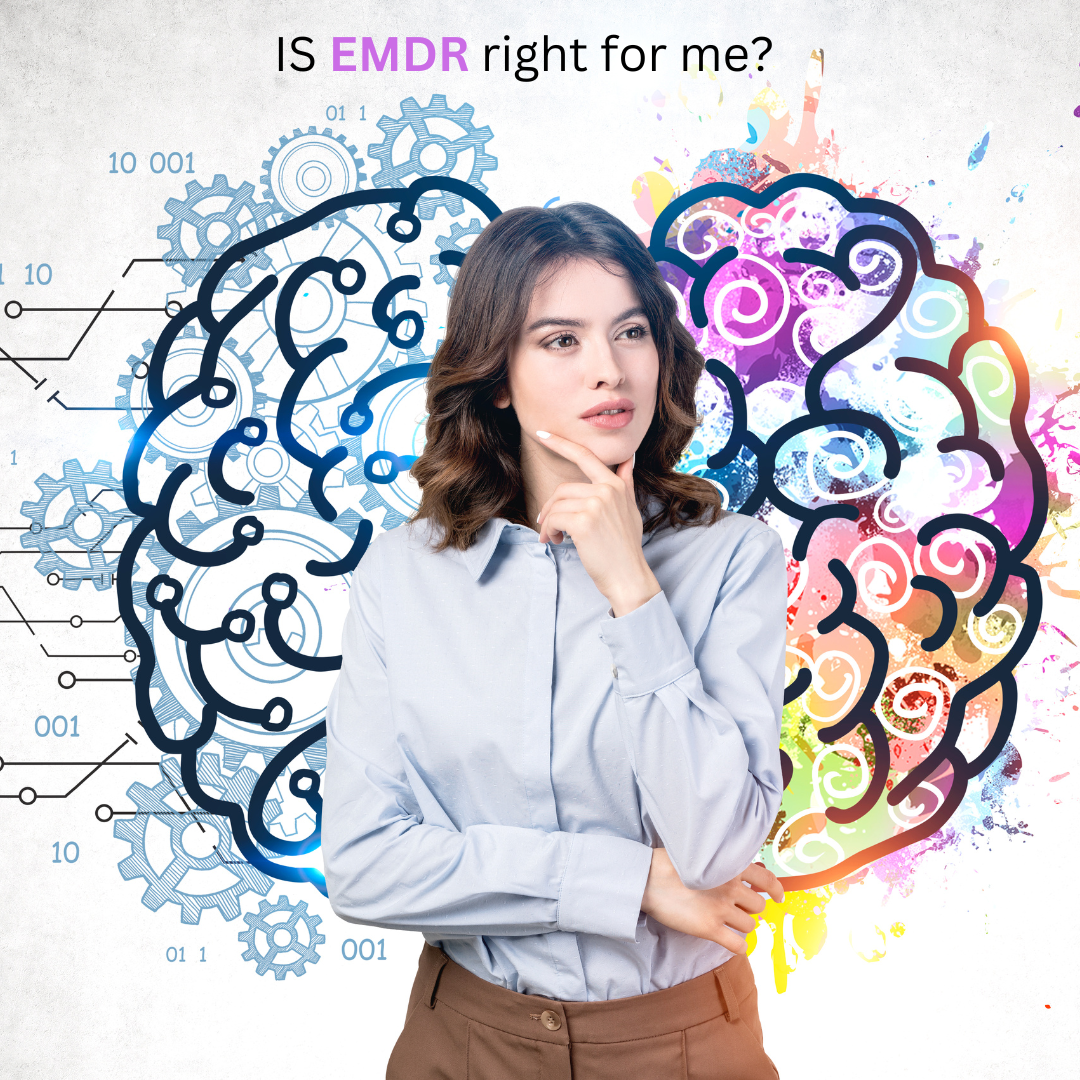How do I know if EMDR is right for me?

If you’ve been struggling with distressing memories, anxiety, or the effects of trauma, you may have come across Eye Movement Desensitization and Reprocessing (EMDR) as a potential therapy option. But how do you know if EMDR is right for you? Let’s explore what EMDR is, how it works, and who it can help.
What is EMDR?
EMDR is a structured, evidence-based therapy designed to help people process traumatic experiences and distressing memories. Unlike traditional talk therapy, EMDR uses bilateral stimulation, rhythmic, left-right patterns of stimulation —often guided eye movements—to help the brain reprocess difficult experiences so they become less emotionally overwhelming. Over time, this can lead to relief from symptoms associated with trauma, anxiety, PTSD, and even phobias.
How Does EMDR Work?
EMDR therapy follows an eight-phase approach, helping individuals process past events, manage present triggers, and build coping strategies for the future. The therapist will guide you through recalling distressing memories while engaging in bilateral stimulation, which helps the brain reorganize how these memories are stored. This process allows emotional reactions to lessen, reducing the impact of past trauma.
Who Can Benefit from EMDR?
- EMDR is widely used to treat:
- Post-Traumatic Stress Disorder (PTSD)
- Anxiety and panic disorders
- Depression linked to past experiences
- Phobias and fears
- Grief and loss
- Performance and social anxiety
- Childhood trauma or attachment wounds
If you have distressing memories that feel unresolved or intrusive thoughts that disrupt your daily life, EMDR may be a helpful approach for you.
Is EMDR Right for You?
EMDR can be a powerful tool, but it’s not for everyone. If you’re considering EMDR, it may be a good fit if:
- You struggle with memories or experiences that feel “stuck.”
- Traditional talk therapy hasn’t provided the relief you’re seeking.
- You experience emotional distress tied to past trauma.
- You’re open to trying a structured, guided approach to healing.
What to Expect in EMDR Therapy
During EMDR sessions, you’ll work with a trained therapist who will guide you through the process. The goal isn’t to erase memories but to change how they emotionally affect you. Most people notice changes after several sessions, but the number of sessions needed varies for each individual.
Final Thoughts
If you’re wondering whether EMDR is the right fit for you, consider speaking with a trained EMDR therapist. They can assess your needs and help you determine if this approach aligns with your healing journey. Healing is possible, and EMDR may be the key to unlocking a healthier, more balanced life.
If you’re ready to explore EMDR, reach out to a qualified therapist to learn more about how it can help you move forward.
© 2025 Heather Marie. All rights reserved.
